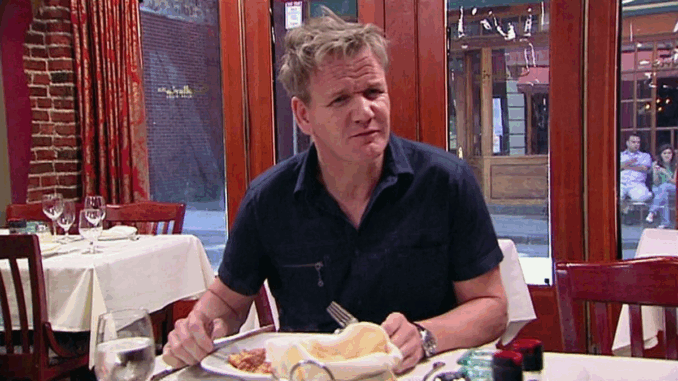
In front of the cameras, Hell’s Kitchen was the ultimate opportunity — a fiery crucible where rising chefs were forged under the unforgiving gaze of Gordon Ramsay. But for one contestant, the dream turned into a nightmare. And what they revealed after the cameras stopped rolling has shaken fans to their core.
In Season 14, a talented but volatile contestant — known here as “D”— quickly became a fan favorite. D’s dishes were creative, bold, and frequently earned Ramsay’s rare praise. But behind the scenes, things were unraveling. In a shocking interview years later, D claimed that the show “wasn’t just stressful — it was traumatic.”
“People think I was eliminated because I couldn’t handle the pressure,” D said. “But the truth is, I was edited to look like the villain. They wanted drama, not talent.”
Even more explosive were D’s claims that the producers deliberately pushed emotional triggers, sleep-deprived contestants, and even orchestrated certain moments to provoke on-air breakdowns — all under the guise of reality TV.
But what does this have to do with Ramsay?
According to D, Ramsay wasn’t merely an actor in this drama — he was deeply involved in shaping how each contestant was portrayed. “He knew how they were editing us,” D alleged. “He called us weak, pathetic — but when I tried to talk to him off-camera about how bad things were getting, he brushed me off.”
After leaving the show, D said they struggled to find restaurant work. The stigma of being seen as “difficult” followed them, and their mental health crumbled. “That show didn’t just ruin my career. It nearly ruined my life.”
Ramsay never responded publicly to the accusation, but the story caught fire on fan forums. Reddit threads exploded with speculation about how much control Ramsay really has over production. Some former contestants came forward to defend him — others, quietly, nodded in agreement with D.

One anonymous source who worked on the show admitted: “The stress on set is real. The yelling, the heat — it’s not staged. But whether Ramsay uses it as a tool or a weapon… that’s up for debate.”
Despite the backlash, Hell’s Kitchen remains one of Ramsay’s most successful franchises, but this dark shadow still lingers. Viewers now watch with a more critical eye, wondering: How much of the chaos is real? And who pays the price for Ramsay’s “perfection”?
D has since left the culinary world, choosing instead to become a vocal advocate for reality show contestants’ mental health. “If I knew what I know now,” D said, “I never would’ve stepped into that kitchen.”
It’s a sobering reminder: behind every explosive episode and shouted insult may lie a much quieter tragedy.